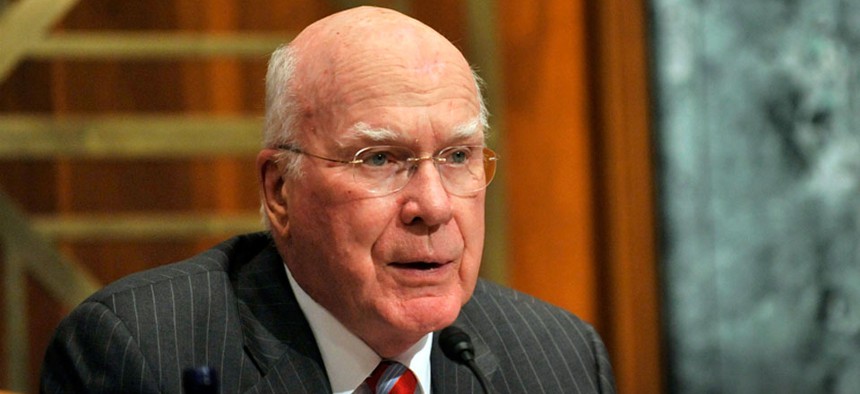
Sen. Patrick Leahy, D-Vt. Defense Department
Bipartisan Bill Would Make it Harder for Agencies to Claim FOIA Exemptions
Leahy-Cornyn plan also aims to strengthen Archives’ mediation office.
Agency officials processing Freedom of Information Act requests would shift to a “presumption of openness” under a bipartisan bill introduced June 24 by Sens. Patrick J. Leahy, D-Vt., and John Cornyn, R-Texas.
The FOIA Improvement Act would curb agency “overuse of exemptions to withhold information from the public,” the senators said, and would bolster the independence of the Office of Government Information Services, a small unit in the National Archives and Records Administration set up in 2007 to facilitate public use of FOIA requests.
Specifically, the bill would require agencies to disclose the harm that might be caused by release of documents for which its FOIA office wishes to claim an exemption to protect internal deliberations or attorney-client privilege. Requesters could win disclosure by demonstrating a compelling need, and agencies would no longer be able to seal off documents more than 25 years old.
“The Freedom of Information Act is one of our nation’s most important laws, established to give Americans greater access to their government and to hold government accountable,” said Leahy, who held a hearing in March on agency use of exemptions. “Both Democrats and Republicans understand that a commitment to transparency is a commitment to the American values of openness and accountability.”
Cornyn, who has partnered with Leahy before, said, “Open government is the hallmark of a healthy democracy, and the American people have a fundamental right to know what their government is doing.”
The bill drew praise from the nonprofit Citizens for Responsibility and Ethics in Washington. “Until today, the FOIA’s promise of transparency simply has not been fulfilled,” said CREW Chief Counsel Anne Weismann, in a statement. “Agencies routinely and needlessly withhold important information from the public. This groundbreaking legislation will ensure the FOIA truly will be an effective tool for Americans to discover what our government is doing and why.”







